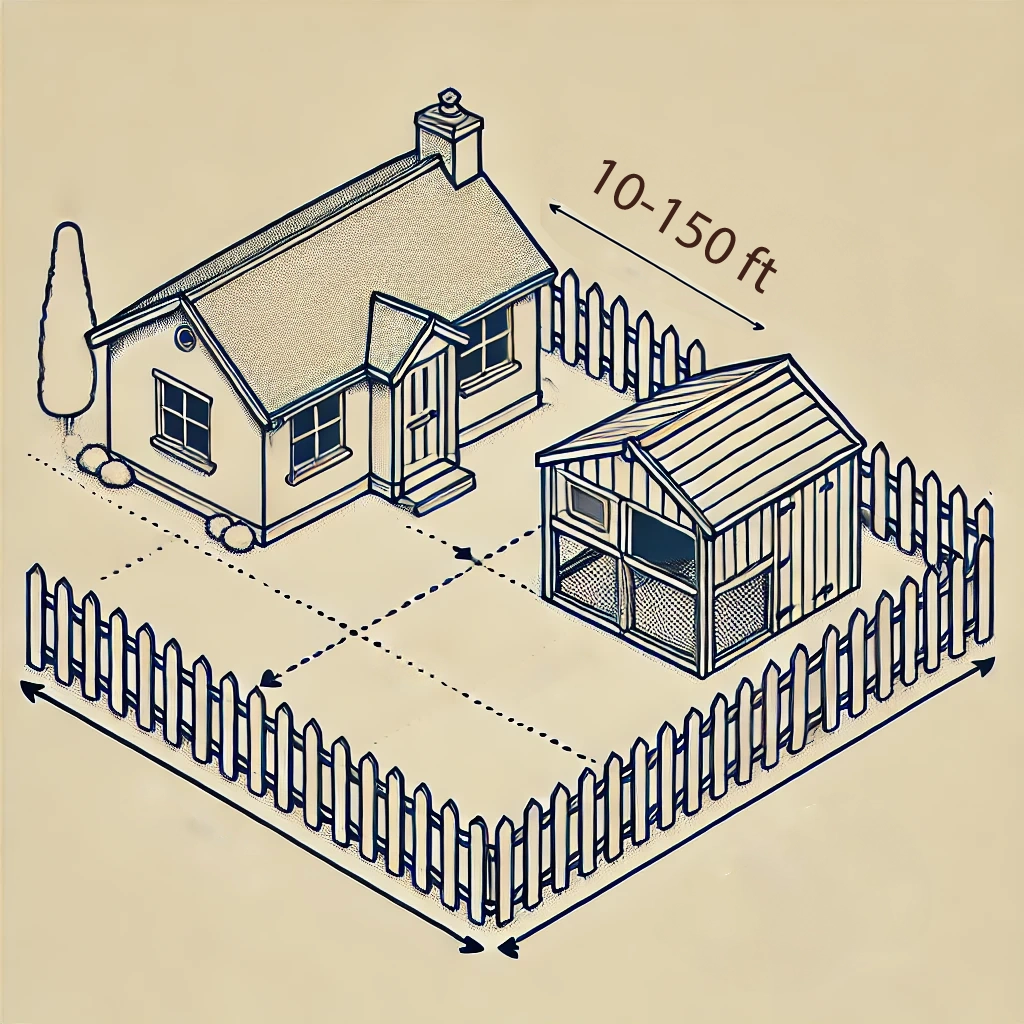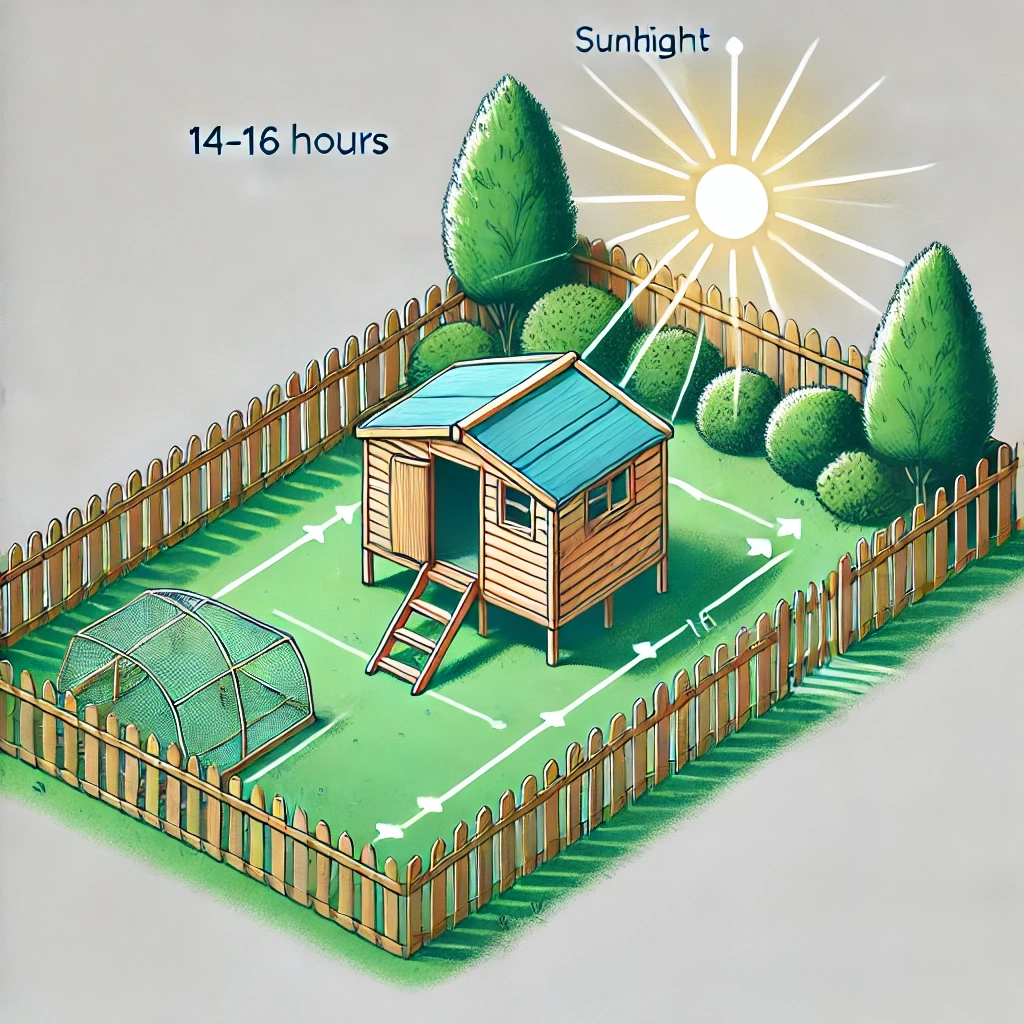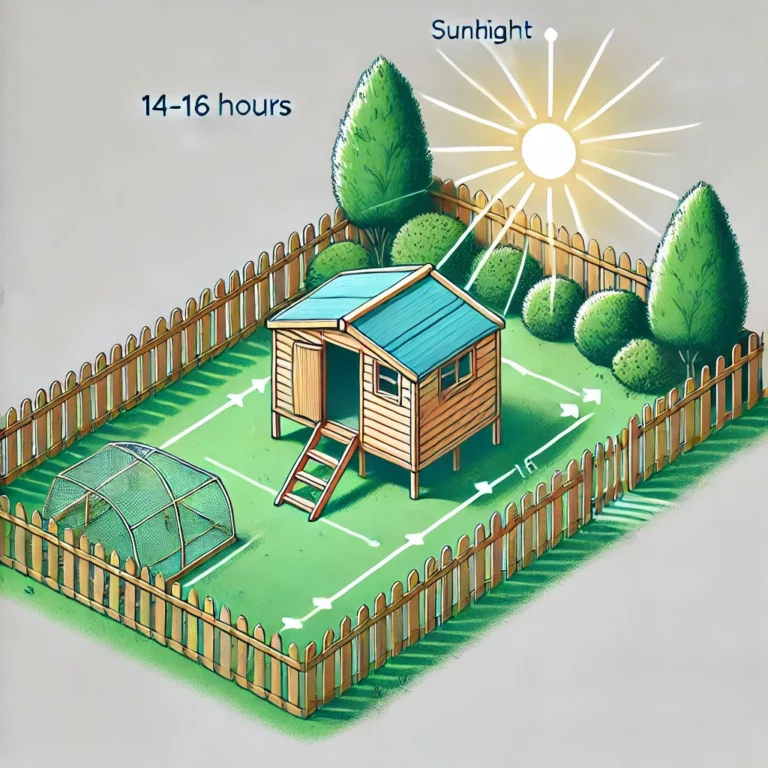This entry was posted on 6 January 2025 in Chicken Coops.
Building a chicken coop in your garden involves more than just picking a spot. Proper placement ensures your chickens stay healthy, happy, and safe while being considerate of neighbours. Here’s a quick guide to help you select the perfect location.
Decide how many chickens you plan to keep, then calculate the space needed for the coop and run. Adequate space ensures your chickens stay healthy and active. Use a chicken coop size calculator for guidance. If you’re looking for high-quality coops, visit Chicken Coops and Houses for a variety of options.
While convenience is key, avoid placing the coop too close to your house. Aim for about 8–10 metres away to minimise noise, odour, and pests. Check local council regulations, as some areas require a specific distance from neighbouring properties.

If you plan to use lighting for year-round egg production or heating in winter, position the coop close to an electricity source. This saves effort and costs when running power to the coop.
Avoid low-lying, damp areas to protect your chickens from flooding and mud, which can lead to disease. A solid, level foundation on slightly elevated ground is ideal.
Chickens appreciate a breeze but not strong winds. Use shrubs, fences, or fabric screens as windbreaks. These barriers also reduce noise and keep your coop out of sight from neighbours.
Your chickens need 14–16 hours of light for egg production, so a spot with both sun and shade is perfect. Trees or shrubs can provide shade in summer and let in sunlight during winter.

Ensure your chickens have enough room to roam and forage. Rotate their foraging areas if space is limited to keep the ground fresh. Remove any toxic plants or litter to keep your flock safe.
Place your coop away from areas where predators might hide, such as woodpiles or thick bushes. Secure the coop with a sturdy foundation, buried fencing, or netting to protect against burrowing animals and birds of prey. For predator-resistant coops, explore the selection at Chicken Coops and Houses.
Keep the coop close enough for easy access when feeding, cleaning, or collecting eggs. You’ll be visiting the coop at least twice daily, so proximity matters for convenience.
The best location for your chicken coop ensures safety, cleanliness, and accessibility while keeping neighbours happy. Choose a dry, sunny, and well-sheltered spot to create a comfortable home for your feathered friends. Ready to start? Explore top-notch chicken coops at Chicken Coops and Houses to find the perfect fit for your garden.

« The best Chicken Breeds for Show
How to Prevent Mould in Your Chicken Coop – A Simple Guide »